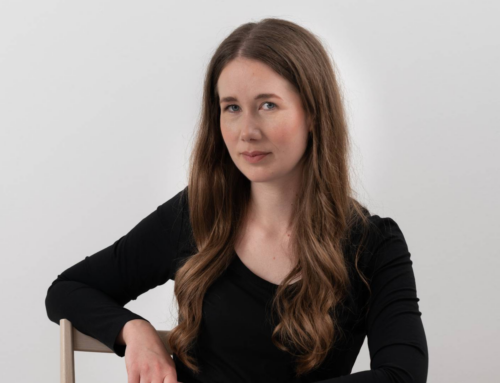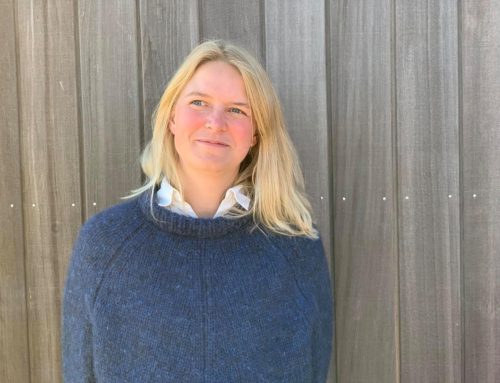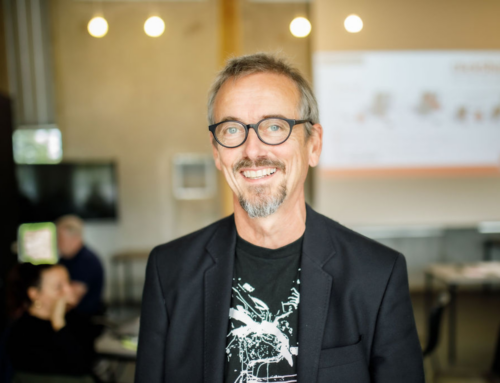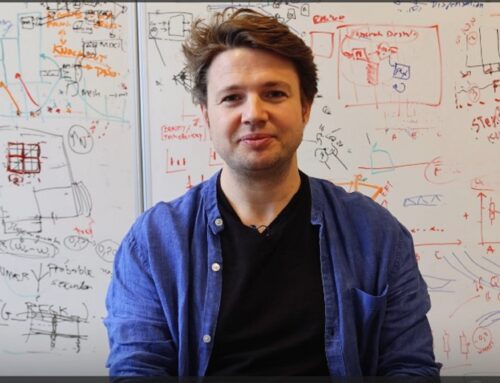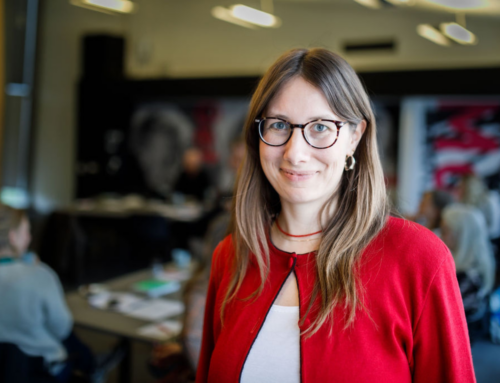
Libraries are Obvious Players in Relation to the ‘Leave No One Behind’ agenda
Historically, public libraries have been a place where everyone, regardless of social background or abilities, could come and seek information and knowledge. Libraries thus play an important role in relation to the work on more inclusion and increased sustainability. However, the outside world must understand this role and the libraries must be prepared for the changing societal needs, says a researcher.
by Nanna Stærmose. The article is published on 16/03/2023.
Public libraries play an important role in terms of utilising the resources that are available in a good and sustainable way. At the same time, it is deeply ingrained in the DNA of public libraries that there must be equal access for all, regardless of background or financial ability.
“This is very much in line with the ‘Leave No One Behind’ agenda, because public libraries have always embraced the population from the bottom up. The idea was for everyone to be able to loan a book or get help to find information,” says Mia Høj Mathiasson, postdoc in the UPSCALE research project, ‘Upscaling sustainable collaborative consumption using public libraries’, which is funded by the Norwegian Research Council.
Lending out fishing rods and the library as a bridge-builder
The main focus of the project is to research how libraries can contribute to creating more sharing solutions as well as optimising the benefits of existing resources. Mia Høj Mathiasson is researching two Danish cases. One is Odense’s libraries, where they since 2016 have been lending out ‘Sustainability Kits’ consisting of fishing rods, sewing machines, juicers, knitting kits and many other things in a pilot project. The idea was partly to inspire to share instead of simply buying new, partly to give access so that people who could not afford to buy things like sewing machines or juicers could loan them here.
The second case is Ballerup Library, which according to Mia Høj Mathiasson has been a pioneering library when it comes to putting the UN’s 17 sustainable development goals on the agenda in a Danish library context. Among other things by being part of a national network of municipalities, NGOs, non-profits and libraries.
“In Ballerup, they have shown how a library can act as a bridge-builder between citizens and associations. In this case, the library takes on a facilitating role as the one that brings people together across institutions and organisations. Imagine, for example, various agencies from a municipality getting better at utilising the municipality’s buildings, so that resource consumption goes down – then we would be well on our way,” says Mia Høj Mathiasson.
Barriers and challenges
The two cases suggest some of the options that libraries can offer in relation to creating a society where inclusion and sustainability come together. But there are also a number of barriers, which include the ones that Mia Høj Mathiasson is in the process of mapping in her research.
“In addition to researching the barriers, we have also looked at what has driven these projects and which preconditions have been necessary for them to succeed,” she says.
Because even though it sounds tempting to be able to go to the library and loan anything from fishing rods to knitting kits and juicers, it turns out that it is not quite that simple. On the one hand, only a few people utilised the offer, which according to the researcher may be related to the fact that citizens have a rather fixed understanding of libraries as places for loaning books. Thus, one of the barriers there is the communication task needed to make the new options visible. Furthermore, it has been difficult for the library to handle the lending out of diverse things.
“When a sewing machine was returned, it had to be checked, so they were sure that it was OK to be loaned again and, after all, handling a sewing machine does require a bit more than handling a book,” says Mia Høj Mathiasson.
She will be involved in the project for the next 12 months and hopes that her research will contribute to illuminating the libraries’ new, broader role.
“It requires us to change our fixed notion of what a library is but, if we succeed in doing that, there is real potential here,” says Mia Høj Mathiasson.
Read more of Mia’s research
Lenstra, N. & Mathiasson, M. (2020). Free and for all? A comparative study of programs with user fees in North American and Danish public libraries. Library Management, 41(2/3), 103–115. https://doi.org/10.1108/LM-08-2019-0053
Mathiasson, M. H. (2020). From means to an end to ends in themselves. Nordic Journal of Library and Information Studies, 1(2), 34–52. https://doi.org/10.7146/njlis.v1i2.121806
Mathiasson, M. H., & Jochumsen, H. (2020). Between Collections and Connections: Analyzing Public Library Programs in Terms of Format, Content, and Role and Function. The Library Quarterly, 90(3), 364–379. https://doi.org/10.1086/708963
Read more:
Ameli, N. (2017). Libraries of Things as a new form of sharing. Pushing the Sharing Economy.The Design Journal, 20(sup1), S3294–S3304. https://doi.org/10.1080/14606925.2017.1352833
Beutelspacher, L., & Meschede, C. (2020). Libraries as promoters of environmental sustainability: Collections, tools and events. IFLA Journal, 46(4), 347–358. https://doi.org/10.1177/0340035220912513
Fedorowicz-Kruszewska, M. (2019). Sustainable libraries—Fashion or necessity?JLIS.it : Italian journal of library and information science, 10(1), 92–101.https://doi.org/10.4403/jlis.it-12500
Less, A. M., Williams, B. F., & Dorsey, S. B. (2012). Librarians as sustainability advocates, educators, and entrepreneurs. In M. Krautter, M. B. Lock, & M. G. Scanlon (Eds.), The entrepreneurial librarian: Essays on the infusion of private-business dynamism into professional service / (pp. 183–201). McFarland & Company, Inc, Publishers.
Leyrer, K. (2018). Libraries Sow the Seed of a Sustainable Society A Comparative Analysis of IFLA Green Library Award Projects 2016. In P. Hauke, H. Sahavirta, & M. K. Charney (Eds.), Going green: Implementing sustainable strategies in libraries around the world: Buildings, management, programmes and services (Vol. 177, pp. 22–31). De Gruyter Saur.
Mansour, E. (2020). Libraries as agents for development: The potential role of Egyptian rural public libraries towards the attainment of Sustainable Development Goals based on the UN 2030 Agenda. Journal of Librarianship and Information Science, 52(1), 121–136. https://doi.org/10.1177/0961000619872064
Pionke, J. J. (2016). Sustainable library services for all. Library Management, 37(6/7), 317–325. https://doi.org/10.1108/LM-04-2016-0030
Tanner, R., Aldrich, R. S., Antonelli, M., & Ho, A. K. (2019). Libraries as Sustainability Leaders: ALA’s Special Task Force. Portal (Baltimore, Md.), 19(3), 365–374. https://doi.org/10.1353/pla.2019.0020
Mia Høj Mathiasson
Assistant professor at University of Southern Denmark
Mia holds an MA in Art History from the University of Copenhagen from 2015 and a PhD in Library and Information Studies from the University of Copenhagen.
In her PhD dissertation, she examines and discusses the role of Danish public libraries’ programmes from a historical and international perspective.
She is currently associated with the research project: UPSCALE – ‘Upscaling sustainable collaborative consumption using public libraries’, funded by the Norwegian Research Council.
Member of the Bevica Foundation’s research network
Read more research profiles
